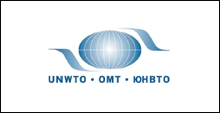Augusto Huéscar Martínez: Economist, expert in the analysis of TourismFINANCIAL
Augusto Huéscar was born in Tarazona de la Mancha (Albacete) on 2nd August 1945.
He is a graduate in economics from the Universidad Central de Madrid.
In 1969 he joined the Oficina Técnica de la Dirección General de Promoción del Turismo del Ministerio de Información y Turismo (Technical Office of the Department of Promotion of Tourism of the Ministry of Information and Tourism) as an economist.
In 1971 he worked as consultant economist for the Sociedad de Investigación Económica (Economic Research Company).
In 1973 he joined the Empresa Nacional de Ingeniería y Tecnología (National Engineering and Technology Company), as a consultant and head of local development and tourism projects.
He joined the World Tourism Organisation in 1997 where he has held various positions including director of the Department of Statistics, director of the Department of Market Research and Promotion Techniques as well as Regional Representative of the WTO for the Americas.
After accumulating 31 years of service with the WTO, he retired in 2008. He is currently a member of the board of various companies and teaches at the university.
"Tourism creates wealth fot nations" After a whole life dedicated to the study and analysis of tourism and 31 years with the World Tourism Organisation (WTO) with management responsibilities, the knowledge and opinion of Augusto Huéscar Martínez is a privilege which brings us closer to this global economic sector. The origins of tourism, the WTO as a specialized agency of the United Nations Organisation, the situation in the light of the current crisis and the interaction of tourism as driving force of other economic sectors and insurance, are some of the topics covered in this interview.
What is the background of tourism as an economic
sector?
with the development of tourism packages by
the Briton Thomas Cook, who was enormously
successful (see separate box). He also carried
out the first organised round-the-world trip
which inspired Jules Verne in his “Around the
world in 80 days”. At the beginning of the 20th
Century, we begin to see a new economic activity
hitherto not well known but which generates
a lot of economic business: tourism. At
that time there appeared the concern to understand
and promote this new activity, beginning
by removing obstacles to its development.
Its economic assessment was considerably
delayed since services were not easily incorporated
into the domestic accounting plan. In
fact, tourism did not have its own heading as
an economic activity until 1994. Before then,
it was recorded under others: hotel trade,
passenger transport, catering, travel agencies
and operators for example.
What does the world tourism sector mean to
the economy?
It is a calculation that has still not been carried
out on a global scale. There are several reasons.
One of them has already been stated, the other
is that when we talk about tourism, we immediately
think of international tourism, but we do
not give due consideration to domestic tourism
which generates five times more arrivals than
international tourism. Apart from Spain and a
few other countries, it is still not possible to
know accurately what economic effects it is
having throughout the world.
What are the dimensions and trends of tourism?
It is estimated that there were 25 million arrivals
in 1950. By 2008, international tourism recorded
924 million arrivals throughout the world. This
means nearly 2% more than in 2007, the best
year in the history of international tourism. In
2007 it brought in one million million US Dollars
and it is very likely that this figure will be repeated
in 2008. This is equivalent to adding USD 2,800 million to global overseas trade every
day. In 2009 zero growth is forecast, or -2% in
the number of arrivals. What we experienced
in previous crises teaches us that tourism will
not necessarily contract in the current economic
climate, but rather change. Change in behaviour.
The length of stay or cost may be reduced,
but people still go on holiday. They may stay in
the country or on the same continent. Domestic
tourism in the large developed countries is
enormously important. In the USA for example,
it is calculated that there are more than 1,300
million journeys per year and in China about
1,000 million journeys.
What trends can be seen in tourism within the
framework of the European Union (EU)?
Europe is the top continental destination and
will continue to be so for several decades. The
Euro-barometer says that 84% of Europeans
believe that quality of life is achieving income
levels to enable them to go on trips since, in
addition to leisure, they provide part of the personal
enrichment that we all seek. There is no
doubt that tourism within the EU is set to increase
substantially over the next few years. In fact,
a whole set of infrastructures are being created
and border obstacles being eliminated in order
to facilitate intra-regional movement. For example,
the most important cities of all European
countries will be connected by motorways or
trunk roads. An extensive network of airports
and rail transport is also being created. The EU
generates an environment with enormous facilities for people movement. In addition, other
initiatives, such as those of a cultural nature or
university exchange programmes, will lead to a
better knowledge of the countries in the European
Union by their citizens. Tourism is also
waking up in other parts of the world. In 1959,
Europe accounted for 86% of international arrivals
and 53% in 2008. This ratio will continue
changing towards a greater decentralisation of
international tourism.
What about Spain? Spain is the second world
destination both in terms of arrivals and income.
In the 60s, it was thought to be a seasonal sector
but it has become a structural activity which
contributes 11% of GDP. A significant part of the
Spanish tourist sector is dependent on domestic
consumption.
With regard to supranational organisations, when was the World Tourism Organisation created as a specialist agency of the UNO?It was formally created in November 1974, when 51 States ratified the Articles of Association of the WTO. An Extraordinary General Meeting was held in the Palacio de Congresos in Madrid in May 1975 and approved: the budget for commencing work; the work programme, which is its main raison d’être; and the global headquarters which fell to Spain. The first Secretary General was also elected. The doors to its offices at 135 Paseo de la Castellana, Madrid, opened on 1st January 1976. All the officials who were in Geneva at the International Union of Official Tourism Organisations (IUOTO), an organisation which preceded the WTO and was created in 1946, following the Second World War, moved to Madrid.
What are the origins of the WTO?
We have to go back to 1946, after the Second
World War. That was when the International
Union of Official Tourism Organisations was
created, an NGO in which the countries were
represented but not as States, but rather as
tourism organisations. From 1958, tourism grew
significantly due to the introduction of jet aircraft.
New needs then began to be appreciated. The
Articles of Association of the WTO, not yet an
NGO, but rather an intergovernmental organisation,
were signed in Mexico in 1970.
For what purpose was the WTO created?
Article 3 of the Articles of Association clarifies
this in one line: the central objective of the WTO
is the development and promotion of tourism
throughout the world, giving priority to developing
countries under the criteria of the United Nations
Organisation. Starting from that point, the organisation
responds to the needs put to it by its
members. The WTO has three types of member:
States; Territories which do not have their own
sovereignty, such as for example Aruba or Puerto
Rico; and about 350 Affiliate members who represent
the private sector, such as companies,
institutions, universities, local tourism organisations,
etc. This is a characteristic of the WTO.
No other agency of the UNO has so many members
from the private sector.
What are the requirements for a company or
institution wishing to become member of the
WTO?
They must be backed by the State in which they
have their headquarters. They must be solvent
and have objectives which are in line with those
of the WTO.
Why does Spain house the headquarters of
the WTO?
By selection. We have to go back to 1975. If my
memory serves me right, about ten States put
themselves forward to become the headquarters
of the WTO. In the end, after successive rejections,
only Mexico and Spain were left and the latter
was ultimately elected. Spain is a huge tourist
power, the second country in the world in terms
of numbers of visitors and income from international
tourists. It is a modern country, it has
attractions and good communications. It is a
natural link between Europe, America and Africa.
The WTO is the only UNO agency to have its
global headquarters in Spain.
Why was the WTO created? How is it organised?
Because the international tourist community
needed a platform from which to manage, jointly
and forcefully, specific aspects of the development
of tourism. Many things can be done better
and more efficiently on a collective basis rather
than individually. The WTO has a functional structure with three
statutory bodies:
- The General Meeting, at which all members are represented: States, territories and affiliate members from the private sector. It controls the work of the Secretary General’s department. It meets every two years to approve the budget and work programme. It elects a Secretary General every four years. The WTO has six regional committees: Africa, the Americas, Southern Asia, Oriental Asia and the Pacific, Europe and the Middle East. They meet once a year.
- The Executive Board is the management committee of the WTO between Meetings and is the body responsible for ensuring that its work programme is carried out in accordance with the budget. It meets twice a year and consists of 33 members. As the country housing the WTO’s headquarters, Spain has a permanent seat on the Executive Board. It has a series of technical committees: Budget and Finance; Statistics and Macroeconomic Analysis; Market Research and Promotion Techniques; Sustainable Development of Tourism; Support for Quality and Trade; Educational, Corporate Advice, etc.
- The Secretary General’s department is the executive body. It is responsible for carrying through the work programme, with its officials, currently about 110, and experts. The department is run by a Secretary General, who until now was the Frenchman Francesco Frangialli, and a Deputy Secretary General, the Jordanian Taleb Rifai, who in May 2009 was elected as candidate for Secretary General, a position which has to be approved by the next General Meeting to be held in October in Astana, Kazakhstan. The official languages of the WTO are Spanish, French, English and Russian.
Are there any UNO resolutions on Tourism?
In the 70s, the UNO passed a resolution giving
the WTO a pivotal role with regard to tourism. It
has been an agency of the United Nations since
2003. The role of agencies is to issue standards,
directives and recommendations. The WTO does
not have a regulatory role although in the field of statistics, for example, the methodological proposal
made by the WTO, the Tourism Satellite
Account, was approved by the UNO Commission
and Office of Statistics. This means that the WTO’s
methodological guidelines for assessing the economic
effects of tourism must be followed throughout
the world. It is now working on the tourism
account in the Balance of Payments in collaboration
with the International Monetary Fund.
What has been the WTO’s main milestone over
the years?
Joining the UNO system, because it puts tourism
on equal footing with other major economic
activities: agriculture, industry, health, culture,
civil aviation, the environment…
With regard to tourism, is Spain an example
from the insurance market point of view?
Of course, in very many cases. Spain has extensive
accrued experience. You have to remember
that, since the 1920s, compulsory transport
insurance was associated with the movement
of people, including the financing of public
tourism institutions. The current types of travel
insurance provide cover for risks which would
undoubtedly be incurred when beginning a journey
inside or outside our country. It is an accessible
and efficient way of eliminating uncertainty
and therefore creating a favourable atmosphere
for tourism. In this, MAPFRE has a key role since
it has not restricted itself to the role of a mere
insurer but has transcended this, providing travel
assistance services, which is a wider concept,
providing immediacy, proximity and support to
the travelling public.
What does security and insurance mean for
tourism?
Security is an essential matter and very sensitive
for tourism, because as soon as any serious
problems are observed in an area, one can temporarily
change ones destination. The tourist is
someone who travels with his whole human
burden and his prime objective is to remove
uncertainty. He knows that, behaving logically, he will incur few risks, but they are there. And
what he does is insure himself against those
risks. Today’s tourist activities are profoundly
associated with insurance.
Is there any strategy for tourism to continue
increasing the wealth of countries?
When you ask the experts, they can identify
various lines of action for you, including: promotion;
product creation; generation of new destinations;
support for the corporate fabric so that
it generates supply or improves what is already
there and the involvement of the local population.
All this implies providing tourist destinations
with infrastructures and services. It means boosting
the economy in a sustainable fashion, by
ongoing, dynamic and joint work between the
public and private sectors. The private sector
generates products which are consumed by
tourists, but the public sector generates another
type of essential services for the tourist industry:
security, health, certain items of equipment and
an offer of basic services supplies.
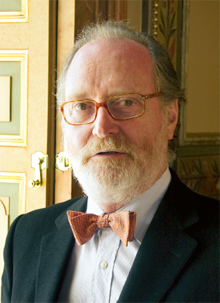
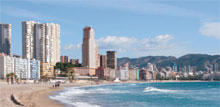
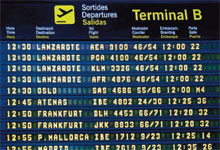
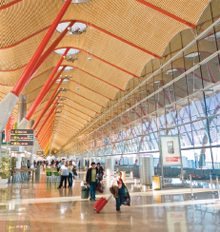
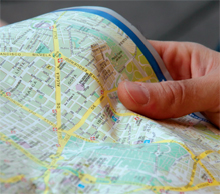
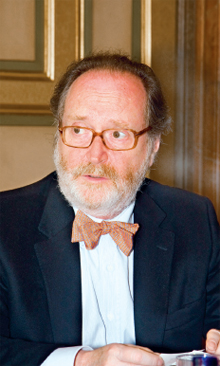
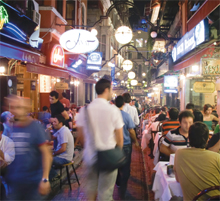


Thomas Cook, inventor of tourism
Considered to be the first travel agent in history, Thomas Cook was born in Melbourne Derbyshire (United Kingdom) on 22nd November 1808. A baptised Pastor and founder partner of an anti-alcohol league, in 1845 he gave his name to a commercial company which he formed as a result of a series of experiences.
In 1841, as a result of organising a rail excursion of barely 11 miles for 570 of his followers in the anti-alcohol league, between the British cities of Leicester and Loughborough, he saw a new way of doing business by charging a small commission on each ticket. So revealing was the experience that on 5th July 1841 he came to an agreement with the railway to secure a percentage for the advance sale of each ticket. In 1851 his company organised the travel of 165,000 people to the World Fair in London in the form of an all inclusive package: transport, meals and accommodation. In 1855 he repeated the experience for thousands of people going to the Paris Exhibition and this time included the services of guides and interpreters. To encourage travel, he made European destinations such as Switzerland fashionable due to the beauty of their landscape.
In 1865 he transferred his company’s head office to London. In that same year, his son crossed the Atlantic to organise guided tours of the scenes of the American Civil War with local operators. In Europe, he managed to become the exclusive operator on various routes such as from the port of Brenner to Brindisi. He travelled throughout Holland, Belgium and Germany to set up transport services with various companies. His company invented a payment system based on coupons which turned into the modern hotel vouchers and travellers cheques. The imitation of his example by other businessmen meant that the movement of tourists was to be considered as a new productive sector. He died in Leicester on 18th July 1892.
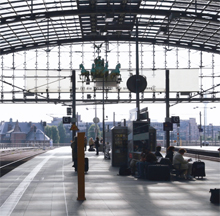
World Tourism Organisation
The WTO is a specialist organisation of the United Nations that represents the main international institution in the field of tourism. Within this world forum, matters of tourism policy are discussed and specialist knowledge is accumulated in the field. The WTO plays a central and decisive role in the promotion of responsible, sustainable tourism which is accessible to all, paying special attention to the developing countries.
The WTO promotes compliance with the Global Code of Ethics for Tourism, designed so that member countries, tourist destinations and companies can maximise the economic, social and cultural benefits of tourism while at the same time reducing any negative social and environmental impact.
Its members include 154 States, seven Associate Members and more than 350 Affiliate Members representing the private sector, from educational institutions to local tourist institutions, companies and authorities.
The regional representatives (from Africa, the Americas, Asia, Europe and the Middle East), undertake direct actions to support the efforts of the domestic tourism authorities from the Madrid headquarters.
The WTO is committed to the objectives of Development of the United Nations for the Millennium, the aim of which is to reduce poverty and encourage sustainable development. (www.unwto.org)
